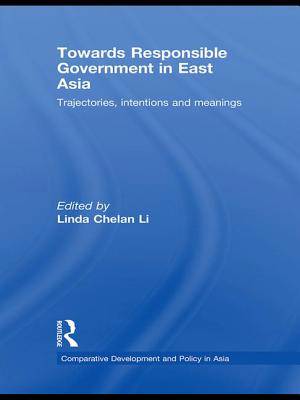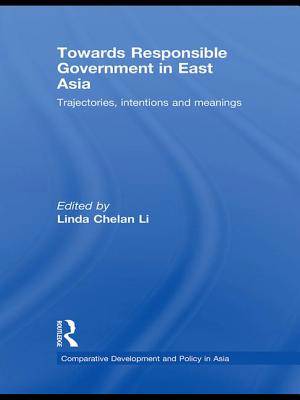
- Afhalen na 1 uur in een winkel met voorraad
- Gratis thuislevering in België vanaf € 30
- Ruim aanbod met 7 miljoen producten
- Afhalen na 1 uur in een winkel met voorraad
- Gratis thuislevering in België vanaf € 30
- Ruim aanbod met 7 miljoen producten
Zoeken
Towards Responsible Government in East Asia
Trajectories, Intentions and Meanings
€ 62,45
+ 124 punten
Omschrijving
This book explores the idea of responsible government in East Asia, arguing that many recent governance crises have resulted from responsibility failures on a huge scale. It distinguishes between accountability, which it argues has been overemphasised recently, and responsibility, which it argues goes beyond accountability, true responsible government involving the actor in feeling liable for and taking responsibility for his or her actions. It shows how historically the concept of responsibility is more embedded in political discussions in Asia, whereas the concepts of democracy and accountability are more embedded in the intellectual traditions of Europe, but that the challenges of revolution and post-revolution, decolonization and post-colonization and neo-liberal globalization have complicated matters. Drawing on a wide range of case studies from East Asia, and relating the concepts discussed to political theory, ethics and social psychology, the book shows how actors in government and society interact to deliberate, produce or distract from the practice and perception of "responsible government", and suggests how the concept of "responsible government", better defined, might be encouraged to produce better governance.
Specificaties
Betrokkenen
- Uitgeverij:
Inhoud
- Aantal bladzijden:
- 152
- Taal:
- Engels
- Reeks:
Eigenschappen
- Productcode (EAN):
- 9781138985841
- Verschijningsdatum:
- 20/05/2016
- Uitvoering:
- Paperback
- Formaat:
- Trade paperback (VS)
- Afmetingen:
- 156 mm x 233 mm
- Gewicht:
- 452 g

Alleen bij Standaard Boekhandel
+ 124 punten op je klantenkaart van Standaard Boekhandel
Beoordelingen
We publiceren alleen reviews die voldoen aan de voorwaarden voor reviews. Bekijk onze voorwaarden voor reviews.











